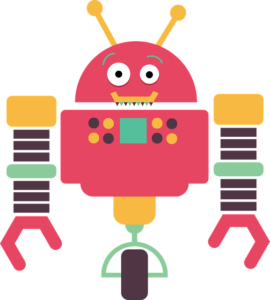
Artificial intelligence
Artificial intelligence (AI), robotics, and all the new techniques and technologies are revolutionizing our world. Many techniques are already being used in various disciplines with surprising results.
For example, in an aging society such as Europe, AI and robotics in particular present interesting possibilities to improve care and reduce costs. AI is already being used to improve the efficiency and personalization of treatments (personalized medicine) and to help prevent and diagnose diseases more precisely. Likewise, the use of surgical robots extends the skills and precision of human surgeons and exceeds the capabilities to perform minimally invasive surgeries, with high precision movements. These robots also open the possibilities for telesurgery while telemedicine is already a reality.
Currently, there is much debate about the use of these new technologies in the fight against COVID-19 and the prevention of future pandemics. Using AI for bio-surveillance and tracking the movements of the virus can open doors to compile information that would otherwise be very difficult to obtain.
Science is by definition collaborative, and in times when countries have closed in on themselves, science and scientists have become more open than ever. The public availability of the viral sequences obtained in different parts of the world makes it possible to analyze the migration of the virus across the globe and the mutations associated with this movement, an essential piece of information to prevent the newly designed vaccines from becoming obsolete in a short time.
The possibility of tracking human contacts and movements allows containing and limiting the spread of the virus and, ultimately, controlling it, but it creates ethical dilemmas regarding the protection of the personal data provided and its possible use for uses not provided for in the initial consent. or illegally.
In health matters, the advances that AI can provide are very numerous, but they also present ethical dilemmas that must be regulated and protected. These dilemmas are also arising from the applications used by certain countries to control infections. It is the responsibility of the governing bodies to regulate the use of this data, in such a way that they allow combating this and future pandemics but, at the same time, respect the right to privacy of all citizens.
We are at a crossroads that requires public, collaborative, and social leadership. How we respond to challenges like this will mark public trust in the face of these new technologies and progress towards a more just and healthy society. But equally free.
Artificial Intelligence, like all new technology, must be regulated based on European rules and values. These technologies are advancing at breakneck speed and regulation must not be left behind, ensuring a fair and equal transition and adaptation for all and especially protecting the most vulnerable groups.
We need an AI that is not only powerful, but also transparent to inspection, traceable, predictable, and robust against tampering. In addition, their regulation must be a cyclical process, open to improvement as longer-term analyzes of these technologies appear and subject to evaluation mechanisms throughout their useful life. To achieve an equal transition it is essential to have the trust of citizens. For this, ethics must be the fundamental pillar on which the regulation of AI is sustained, with fundamental rights at its base.
Finally, it is worth remembering that AI and associated new technologies should not be an end in themselves, but rather a means to facilitate progress and innovation, preserving and improving social well-being and individual freedom.






